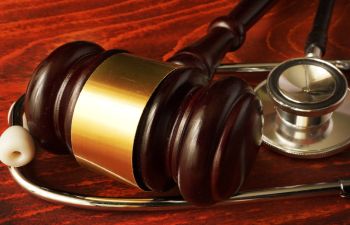Are Medical Bills Leaving You Crippled in Debt?

If you have medical bills that are piling up, it can result in significant financial hardship. Managing your budget becomes increasingly difficult when you can’t cover the monthly cost of bills. Medical bills are classified as unsecured debt, which means you could consider filing for bankruptcy to relieve the financial pressure.
Informally referred to as medical bankruptcy when the bulk of the debt is related to treatment costs, a Chapter 7 bankruptcy would allow you to discharge most, if not all, of your unsecured debts. Things like credit cards, utility bills and department store cards are examples of the types of debt that are included in a Chapter 7 bankruptcy.
Filing Before Treatment is Complete
If you are still receiving treatment, you may wish to hold out until it is complete. A Chapter 7 bankruptcy will only cover medical bills up until the filing date. That means you will need to pay any medical bills generated after filing a Chapter 7.
Alternatively, you can contact the healthcare provider to discuss affordable ways of managing your medical bills. If you are struggling to pay, the hospital or doctor may offer discounts or waivers to help you cope with the burden. The Hospital Care Assurance Program (HCAP) is also available to patients on a low income.
When Bankruptcy is the Best Option
Bankruptcy may be the best option for eliminating medical bills. The most likely path you would then take is filing for Chapter 7 bankruptcy. However, there are qualifying conditions that dictate if you are able to file for Chapter 7. If you are not eligible for this type of bankruptcy, Chapter 13 is a potential alternative solution. In Chapter 13, you will have to pay a portion of the medical bills that you owe through a repayment plan lasting 3-5 years.
If you are considering bankruptcy to eliminate your Atlanta medical bills, reach out to Gingold & Gingold, LLC, for a free consultation today.







